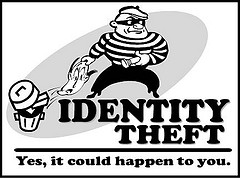
by Kendra Hughson | Apr 10, 2019
Just like your home, finances need regular “cleaning” and maintenance. Plan time this spring to focus on financial tasks. A little time spent getting organized and reviewing your financial habits helps keep your financial goals on track.

Spring clean your finances by getting organized. Photo Credit: Kendra Zamojski
Get Organized
A good spring cleaning starts with getting organized. Sort through important papers. Decide what you need to keep and what can be shredded or tossed. File your important papers. If you don’t have a home filing system, now is a great time to set one up. With an organized filing system, you can locate important documents quickly and easily when needed. Use UF/IFAS Extension’s Financial Recordkeeping resource to know what to keep and what to toss.
Track Your Spending
Update your spending plan by reviewing your financial goals. Check your financial progress by tracking your spending. Where is your money going? Is your money going toward your goals? Get the whole family involved in recording expenditures for a month. Track expenses by writing down every expenditure on a piece of paper. Alternatively, find a box and place all your receipts in it, being sure to include any money spent even if you didn’t receive a receipt. At the end of the month, review your spending record and look for places where you can cut back. UF/IFAS Extension’s Building a Spending Plan: All Six Steps is a great tool to create or update your spending plan.
Review Your Credit Report
A good credit history saves money through lower interest rates and makes it easier to get credit when needed. Annually, review your credit report from each of the three major credit bureaus. By law, consumers are entitled to one free copy of their credit report every 12 months from Equifax, Experian, and TransUnion. Get free copies of your credit reports at www.annualcreditreport.com. Consider rotating through the three bureaus every few months so you can check your credit report throughout the year. Review your credit report for errors and fraudulent activity. Also, review any negative information that could impact your credit and credit score.
Credit scores are based on the information contained in your credit report. You can obtain your credit score from www.myfico.com for a fee. Many credit card companies offer free FICO scores through their online billing websites. Companies like Credit Karma and Credit Sesame offer free credit score estimates but these sites also include advertisements for financial and other products. Check out UF/IFAS Extension’s You and Your Credit Series.
Make your finances a part of your springtime cleaning routine. A little time spent getting organized and reviewing your spending plan and credit reports will go a long way toward keeping you on track toward your financial goals.
by Kristin Jackson | Feb 9, 2015

Photo by: White,T. (N.D.) Identity Theft Protection. Retrieved 9 February 2015 from http://goo.gl/46HkDp
While the commercials about identity theft maybe funny, identity theft is no laughing matter. Identity theft occurs when someone’s personal information is used to access money. According to the national crime and victimization survey it is estimated that identity theft cost Americans approximately twenty-four billion dollars in 2012. In fact, in the time it will take the average person to read this first paragraph, research estimates there will be fourteen new identity theft cases or one victim every two seconds (Javelin Strategy & Research in 2013).
In 2013, the Federal Trade Commission ranked Florida as number one with regard to fraud complaints in the United Sates. The top reason for fraud in Florida was listed as stealing social security numbers to collect phony tax returns or to collect another government benefit. UF IFAS Extension Family & Consumer Sciences has some tips to help you be proactive when it comes to protecting your identity during tax time.
- Choose a reputable tax preparer or consider visiting a Volunteer Income Tax Assistance (VITA) Site.
- Only carry your social security card and tax documents to and from the tax site. When you are not using these documents, put them in a safe place at home.
- Check your credit report frequently. You can obtain one free report from each of the three credit bureaus every 12 months.
Identity theft is no laughing matter. Use the steps above to help protect your personal information. If you believe that you have been a victim of identity theft report incidents to the Federal Trade Commission at 877-738-7338. For more information on identity theft or for help reading your credit report contact your local UF IFAS Extension Family & Consumer Sciences agent.
Additional Resources:
Federal Trade Commission (2008). Building a Better Credit Report
Federal Trade Commission (N.D.). Identity Theft. Retrieved
Gutter, Elemore, Mountain (2015). You and Your Credit: Credit Reports
References:
Fuchs,E. (2013). Identity Theft Now Costs Far More Than All Other Property Crimes Combined. Retrieved 9 February 2015 from http://www.businessinsider.com/bureau-of-justice-statistics-identity-theft-report-2013-12
Frohlich, T. (2014). Top state with the most fraud complaints. Retrieved 9 February 2015 from http://www.usatoday.com/story/money/business/2014/03/08/states-with-most-fraud-complaints/6173855/
Javelin Strategy & Research (2014). 2014 Identity Fraud Report. Retrieved 9 February 2015 from https://www.javelinstrategy.com/uploads/web_brochure/1405.R_2014IdentityFraudReportBrochure.pdf
by Elizabeth | Mar 7, 2013
SHOPPING FOR A CARD
Here are some tips on choosing the best card for you:
- Will the card be accepted in places where you want to use it?

- Is there a minimum requirement for the card to remain usable?
- Are there reload limits?
- Is there a daily cash withdrawal limit?
- Are there convenient ATMs where you can make withdrawals?
- Are there fees charged for withdrawals or other activity?
MANAGING YOUR CARD:
Like any account you have, reloadable cards require that you monitor your account. This will prevent you from being charged for unnecessary services.
Monitor your balance to prevent over the limit usage.
FEES:
Not all cards are created equal just like credit cards. One needs to read the small print on the cards website before “loading “it. Below are the most common charges associated with prepaid cards:
- Purchase fees: A charge for buying the card normally at a retail store.
- Activation fees: One time charge also known as opening fee. This fee can be from $30 or more.
- Monthly maintenance fee: A common fee that can vary depending on the card. This fee can be upwards of $10 a month.
- Reloading fee: Fees applied when one adds more money to the card. These may also include third party fees.
- Purchase transaction fee: May be waived for some direct deposit cards.
- Overdraft fees: Just like debit and credit cards some cards will charge if one spends more than what is on the card.
- Cashier withdrawal: Charged when one withdraws at a bank or an agent location
- ATM fee: Charged for withdrawing money from an ATM machine. Some cards do have free withdrawals at participating ATM locations.
- Denied Transaction Fee: Some cards charge if your purchases are denied because there is no money on the card.
- Funds transfer fees: May be charged for transfers made from one card to the other.
- Balance Inquiry fee: Charged for getting your balance statement.
- Inactivity fee: If you don’t use the card (typically in 60 to 90 days) you will get charged.
- Card Replacement fee: Charged if your card is lost or stolen.
- Customer service fee: Charged by some card issuers when you contact their customer service department.
- Foreign Currency conversion fee: If you use the card outside the U.S., you may be charged. Credit and debit card issuers may do this as well.
For more information on pre-paid cards and the rules that govern them visit these federal agencies websites below or the University of Florida Family Youth and Community Sciences at http://fycs.ifas.ufl.edu/
*Federal Deposit Insurance Corporation (FDIC) www.fdic.gov
*Federal Trade commission (FTC) www.ftc.gov
*Federal Reserve Bank www.federalreserve.gov
*Consumer Financial Protection Bureau (CFPB) www.consumerfinance.gov
by Elizabeth | Mar 4, 2013
What are prepaid cards?
Pre-paid cards or network branded prepaid cards are not credit cards, although they are sometimes marketed as “prepaid credit cards”. No credit is offered by the card issuer and the cardholder spends money which has been prepaid to a card. The value is not physically stored on the card. Instead, the card number uniquely identifies a record in a central database, where the balance is recorded. In many ways, a reloadable card is similar to a credit or debit card. Like most debit and credit cards, many reloadable cards carry a logo from one of the major electronic payment networks; Visa, American Express, Discover or MasterCard. Any business that accepts these logos around the world are likely to accept the reloadable card.
Prepaid cards have been marketed to consumers with poor credit who are unable to qualify for the line of credit that backs a mainstream credit card. The fees associated with these cards are often very high. Though convenient, these cards can be an expensive way to spend your own money.
A major difference between prepaid cards and a credit or a debit card is that the cards have to be “loaded” before one can use them. In other words one must put money on the card before one can use it. When the balance gets low, one can reload (add more money) as the name implies. Depending on the card, one can reload online, in person, and/or through a direct deposit from a work place.
Prepaid cards advantages:
- The cards can be safer than cash. If the card is registered with an issuer and it’s lost, one can recover their full balance.
- They are convenient like credit cards but don’t allow users to carry a balance.
- Account activity does not impact one’s credit.
- Credit checks are not required to get a prepaid card.
- Prepaid cards that allow direct deposit may save one some money by allowing online and telephone payments for other debts just like a credit or debit card.
- The money on the card is protected by the FDIC insurance or by laws requiring consumers to have access to those funds.
- A prepaid card “may” teach young people how to use credit cards responsibly and how to stick to a budget.
- Prepaid cards can be used internationally.
Disadvantages:
- Prepaid cards are loaded with fees that make them more expensive to have and to use.
- Prepaid cards cannot help one establish or build a good credit history
For more information on this and other types and uses of credit cards visit the Federal Reserve “What You Need to Know Series” at http://federalreserve.gov/consumerinfo/wyntk.htm or the University of Florida Family Youth and Community Sciences at http://fycs.ifas.ufl.edu/




